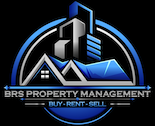Being a landlord is rewarding, but it also comes with its fair share of challenges—especially when dealing with difficult tenants. From late rent payments to lease violations, handling these situations effectively is essential to protecting your investment and keeping your property profitable.
In this guide, we’ll explore best practices for managing difficult tenants, staying legally compliant, and maintaining a professional landlord-tenant relationship.
Common Tenant Issues and How to Address Them
Late or Non-Payment of Rent
How to Handle Late Rent Payments
Clearly outline rent due dates and penalties in the lease agreement.
Send friendly payment reminders before rent is due.
Offer an online payment system to make transactions more convenient.
If late payments continue, enforce late fees or consider adjusting the due date to align with the tenant’s pay schedule.
For non-payment, follow state eviction procedures while ensuring compliance with local rental laws.
Property Damage
Preventing and Addressing Tenant-Caused Damage
Conduct regular property inspections and document findings.
Require a security deposit that covers damage beyond normal wear and tear.
If a tenant damages the property, assess the repair cost and communicate it professionally.
Consider requiring rental insurance to cover significant damage.
Noise Complaints from Neighbors
Enforcing Noise Policies in Rental Properties
Issue a written warning for first-time offenses.
If noise complaints persist, involve local authorities or discuss lease termination options.
Unauthorized Guests or Pets
How to Handle Unauthorized Tenants or Pets
Specify guest and pet policies in the lease agreement.
Conduct routine property visits to ensure compliance.
If an unauthorized guest or pet is discovered, send a notice to correct the issue or risk lease termination.
Lease Violations
Addressing and Resolving Lease Breaches
Keep detailed records of all lease violations.
Issue formal written notices before taking legal action.
Enforce lease terms while ensuring compliance with state and local housing laws.
Legal Considerations: Staying Compliant with Tenant Rights
Even when dealing with difficult tenants, landlords must follow local rental laws and fair housing regulations. Key legal considerations include:
Document all tenant communication to protect yourself in case of disputes.
Use proper legal notices when addressing lease violations.
If eviction is necessary, follow the legal eviction process in your state to avoid legal repercussions.
For more information on landlord-tenant laws, visit HUD’s official tenant rights guide. When to Hire a Property Manager
Handling difficult tenants can be time-consuming and stressful. If you’re overwhelmed with tenant issues, hiring a professional property management company can save you time and ensure lease compliance.
At BRS Property Management, we handle:
✅ Tenant screening to avoid rental issues before they begin.
✅ Lease enforcement to ensure compliance.
✅ Rent collection & financial management to maintain steady cash flow.
✅ Evictions & legal notices to protect your investment.
Let our experienced team take the stress out of rental property management! Final Thoughts
Dealing with difficult tenants is part of being a landlord, but with clear policies, proper documentation, and professional communication, you can prevent many common rental issues and maintain a smooth landlord-tenant relationship.
Looking for expert help managing your rental property? Contact BRS Property Management today!
📞 (586) 770-6468


